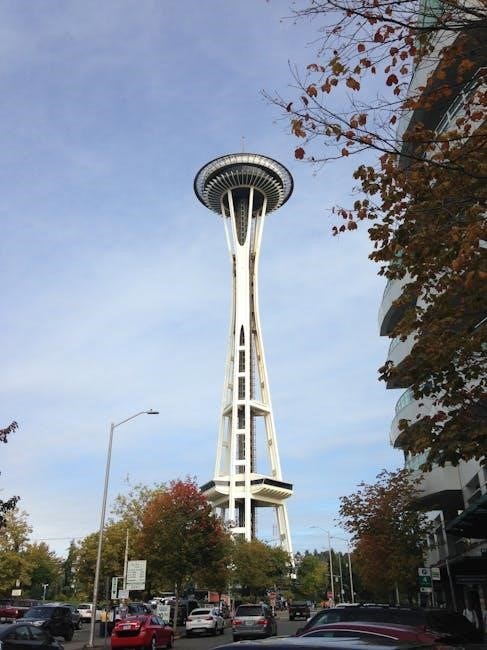How America Got Mean: An Exploration of Societal Transformation
America’s societal transformation into a “mean” culture reflects deep shifts in political discourse, economic inequality, and cultural values. The decline of empathy, rise of individualism, and fragmented institutions have eroded national unity, fostering division and alienation among citizens.
The concept of “mean” in American society refers to a perceived shift toward increased rudeness, alienation, and a decline in empathy among citizens. This transformation is rooted in broader societal changes, including political polarization, economic inequality, and cultural shifts. Over time, these factors have contributed to a fractured social fabric, where individuals often prioritize self-interest over collective well-being. The rise of individualism and the erosion of shared values have further exacerbated this trend, creating a culture where kindness and compassion are increasingly undervalued. This societal “meanness” is not just about personal behavior but reflects systemic issues, such as fragmented institutions and the influence of social media, which amplify division and conflict. Understanding this shift requires examining historical, economic, and cultural dynamics that have reshaped American society, ultimately leading to a sense of disconnection and hostility among its people.

Historical Context of American Societal Change
America’s societal transformation toward meanness is rooted in historical shifts, such as post-Civil Rights era divisions, the rise of neoliberal economics, and the 1980s political realignment. These changes eroded social unity and amplified individualism.
The Evolution of Political Discourse in America
The evolution of political discourse in America has become increasingly polarized and hostile. Historically, political debates centered on policy and ideology, but modern discourse often prioritizes personal attacks and divisive rhetoric. This shift began in the late 20th century with the rise of cable news and talk radio, which emphasized sensationalism over substance. The advent of social media further accelerated this trend, creating echo chambers where extreme views are amplified. Politicians and media figures now often use inflammatory language to mobilize their bases, fostering an environment of mistrust and hostility. This erosion of civil discourse has significant implications for governance and social cohesion, as it undermines the ability to find common ground and address pressing national challenges. The result is a political landscape marked by gridlock, resentment, and a growing sense of alienation among citizens.
The Role of Political Polarization
Political polarization has deeply divided America, fostering hostility and mistrust. The intensification of partisan identities has eroded civil discourse, creating an environment where compromise is seen as weakness, further fueling societal meanness and division.
The Impact of Fragmented Institutions on National Unity
The fragmentation of American institutions has significantly weakened national unity, fostering division and mistrust. Political, social, and cultural systems, once designed to unify, now often amplify differences. This disintegration has led to a breakdown in collective identity and shared purpose.
- The erosion of trust in government, media, and other institutions has created a void filled by partisan rhetoric and misinformation.
- The rise of identity politics and niche ideologies has further fragmented society, reducing opportunities for cross-cultural understanding.
- Technological advancements, while connecting people, have also enabled echo chambers, isolating individuals within like-minded communities.
These factors collectively undermine the cohesion necessary for a unified society, leaving Americans more divided and less empathetic toward one another. Rebuilding national unity requires addressing these systemic fractures and fostering environments where diverse perspectives can coexist meaningfully.

Economic Inequality and Its Social Consequences
Rising economic inequality in America has fueled social division, reduced empathy, and eroded collective well-being. Widening wealth gaps have created stark disparities in opportunities, exacerbating resentment and fostering a culture of competition over cooperation.
The Decline of the Middle Class and Its Effects
The decline of the middle class in America has significantly contributed to societal meanness. As stable, well-paying jobs diminish, economic instability has grown, fostering a culture of scarcity and competition. This shift has eroded trust and solidarity among citizens, as individuals increasingly view others as rivals rather than neighbors. The loss of financial security has also heightened stress and anxiety, leading to a decline in empathy and an increase in self-centered behavior. Furthermore, the middle class, once a stabilizing force in society, has been replaced by a growing wealth gap, exacerbating feelings of alienation and resentment. These changes have weakened community bonds and civic engagement, creating a fragmented society where kindness and cooperation are often overshadowed by survival instincts. The disappearance of the middle class has not only economic but profound social and psychological consequences, deeply shaping America’s transformation into a meaner society;

Cultural Shifts and the Erosion of Empathy
Cultural shifts in America have led to a decline in empathy, fostering a more self-centered society. The rise of individualism and social media has amplified divisive rhetoric, reducing compassion and increasing interpersonal conflict and alienation.
The Influence of Social Media on Human Interaction
Social media has profoundly reshaped human interaction, often fostering division and meanness. Platforms prioritize controversial content, creating echo chambers that amplify polarization and hostility. The decline of face-to-face communication has eroded empathy, as people interact behind screens, often losing inhibitions and engaging in harmful behavior. Algorithms reward outrage, encouraging users to adopt extreme positions and dismiss opposing views. This digital environment has normalized rudeness and diminished the capacity for constructive dialogue. Additionally, the anonymity afforded by social media platforms emboldens individuals to express sentiments they might suppress in person, further contributing to a culture of disrespect and alienation. Over time, these interactions have seeped into real-world dynamics, undermining trust and cooperation. The result is a society where empathy is increasingly rare, and meanness is normalized in both online and offline spaces.

The Rise of Individualism Over Collectivism
America’s shift from collectivism to individualism has eroded communal bonds, fostering self-reliance over shared responsibility. This cultural change has diminished empathy and cooperation, contributing to a society where personal success often overshadows collective well-being.
The Changing Definitions of Commitment and Responsibility
Shifts in societal values have redefined commitment and responsibility, moving away from traditional notions of duty and loyalty. Today, commitment is often viewed as flexible, with individuals prioritizing personal goals over long-term obligations. This transformation is evident in declining rates of marriage, increased job-hopping, and a general devaluation of institutional loyalty. Responsibility, once tied to community and family, is now more individualized, with people focusing on their own success rather than collective well-being. This shift has led to a culture where accountability is often avoided, and societal expectations are met with skepticism. The rise of informal relationships and the decline of formal institutions have further eroded traditional understandings of commitment. While this change has brought greater personal freedom, it has also contributed to a sense of disconnection and a lack of shared purpose. The redefinement of these values reflects broader cultural trends toward individualism and self-reliance, which have reshaped American society in profound ways.

The Role of Leadership in Shaping Societal Behavior
Leadership plays a pivotal role in shaping societal behavior, as leaders set the tone for cultural norms and values. When leaders prioritize divisiveness or self-interest, it fosters a culture of disrespect and fragmentation.
This trickle-down effect has contributed to America’s societal meanness, as leaders’ actions often normalize harmful behaviors and erode empathy, further alienating citizens and deepening societal divides.
The Impact of Policy on Social Cohesion
Policies have significantly influenced social cohesion in America, often exacerbating divisions rather than bridging them. Tax reforms favoring the wealthy and cuts to social programs have widened economic disparities, fostering resentment and alienation. Healthcare and education policies have similarly failed to address systemic inequalities, leaving marginalized communities feeling abandoned. These decisions have eroded trust in institutions, deepening societal fractures. Additionally, immigration and criminal justice policies have fueled polarization, creating “us versus them” narratives. Such policies have not only failed to promote unity but have often emboldened divisive rhetoric, further fragmenting the nation. The psychological toll of these choices is evident in rising stress levels and declining empathy. To reverse this trend, policymakers must prioritize inclusivity and equity, ensuring that all citizens feel valued and represented. Without such reforms, the erosion of social cohesion will continue, perpetuating a culture of meanness and disunity.
Psychological and Emotional Impacts on Americans
Rising sadness, alienation, and stress levels among Americans reflect the psychological toll of societal meanness. Erosion of trust in institutions and relationships has fueled anxiety, while declining empathy exacerbates emotional isolation, deepening the national mental health crisis.
The Future of American Society: Potential Paths Forward
The future of American society hinges on addressing the root causes of meanness, such as economic inequality, political polarization, and cultural shifts; Rebuilding empathy and trust requires collective efforts to foster inclusivity and unity. Policies aimed at reducing wealth gaps and strengthening social safety nets could alleviate economic stress, while education systems can emphasize emotional intelligence and civic engagement. Community initiatives and grassroots movements can reconnect individuals, fostering a sense of belonging. Additionally, redefining success beyond material wealth and encouraging meaningful human interactions can help shift cultural values. Technology, while often criticized for fostering division, could also be leveraged to promote dialogue and understanding. Ultimately, the path forward demands a societal commitment to empathy, collaboration, and shared responsibility. While challenges are significant, the resilience and adaptability of Americans offer hope for a more compassionate and united future. The choices made today will shape whether America moves toward healing or further fragmentation in the years to come.